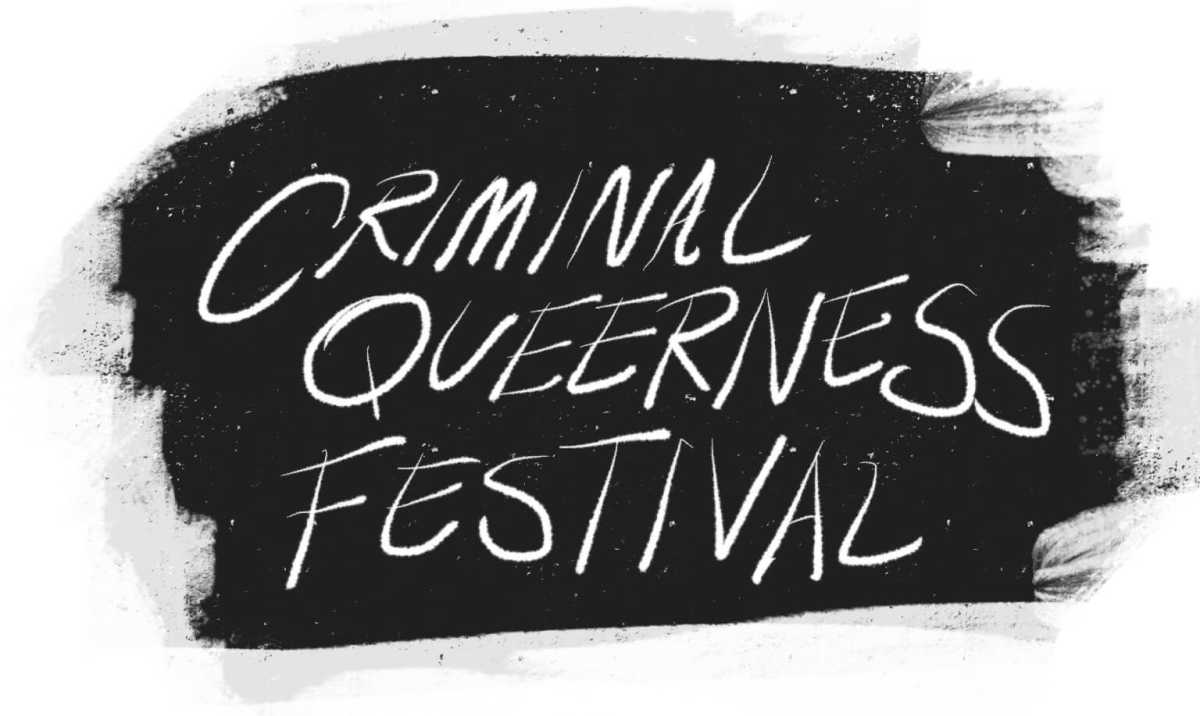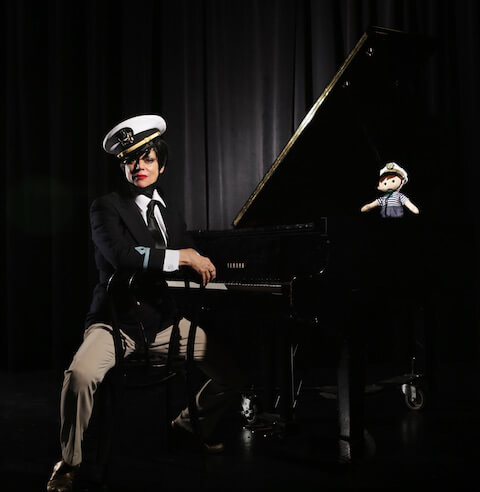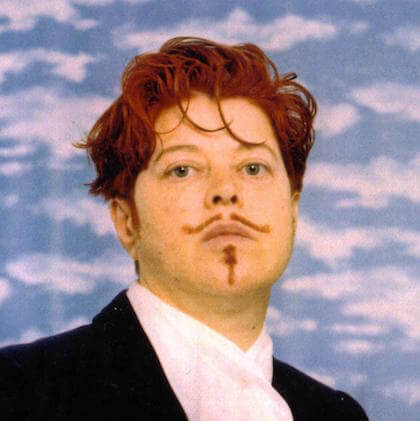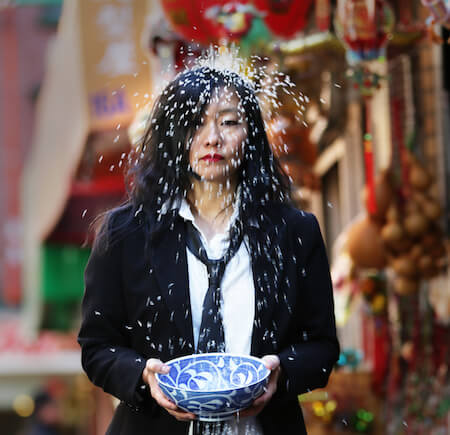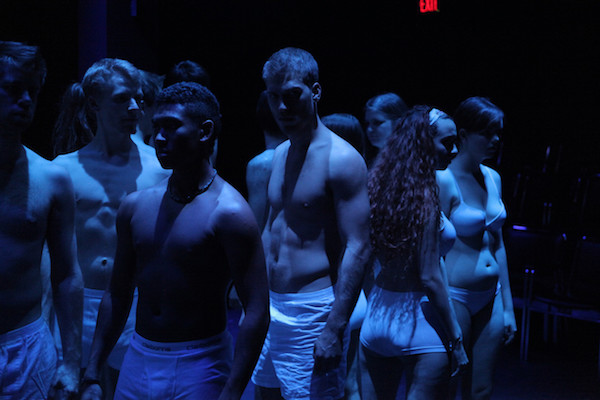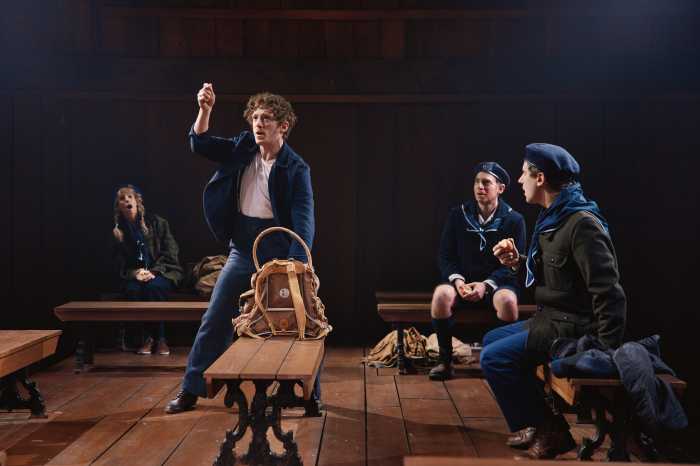In “As You Like It,” the banished Duke exiled to the forest gathers his men and tells them, “Sweet are the uses of adversity.” Resolutely putting the best face on a terrible situation, he vows to make the best of it. That pretty much describes the scene here in New York over the past few months as theater artists of all types have been striving to keep going in a virtual world.
Yet, what if adversity might be opportunity? That’s exactly what happened with the Criminal Queerness Festival. Heading into its second year in 2020, COVID-19 slammed the breaks on the series of international plays, talkbacks, and events produced by National Queer Theater in conjunction with Dixon Place.
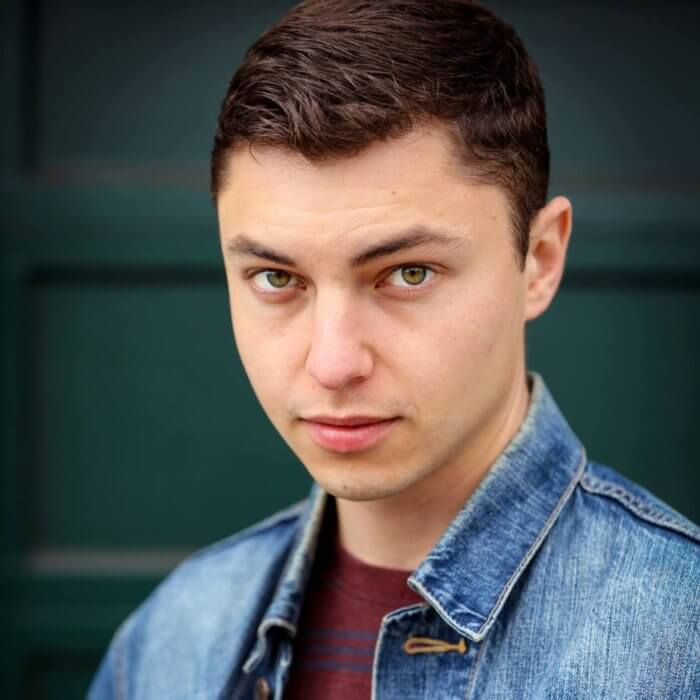
Festival creator Adam Odsess-Rubin, founding artistic director of National Queer Theater, saw the new restrictions as a chance to reach a larger audience. Undeterred by the pandemic or closures, Odsess-Rubin has taken the entire festival online. Running from June 13-28, the varied programming features nine events that bring together queer artists from around the world in plays and panels that touch on issues confronted by people in countries where it is dangerous to be out and illegal to be queer.
According to Odsess-Rubin, the festival began in 2018 as what was going to be a “Queer Village Reading Series.” In soliciting plays from around the world, the committee received a play from Egyptian playwright Adam A. Elsayigh called “Drowning in Cairo.” It told the story of a group of gay Egyptian men who were arrested during a boat party on the Nile River, tortured, and imprisoned simply for the fact that they were gay. The story had made international headlines, but as Odsess-Rubin says, he was” really blown away by the play that created a three-dimensional story that highlighted the complexity and diversity of queer life around the world.”
The play had not been able to be produced in Egypt, and even a private reading there was risky because there was fear that the secret police would break in and arrest them all.
“I always find readings boring, but I realized that it can be a dangerous act,” Odsess-Rubin said.
This realization led him, Elsayigh, and Tanzanian playwright Nick Hadikwa Mwaluko into a discussion about censorship of gay writers, and they wondered how many works from queer artists and writers are lost because of government repression. They determined to create a festival of some of these international works, and, given how dangerous those works were viewed as in their home cultures, Mwaluko dubbed it “Criminal Queerness.”
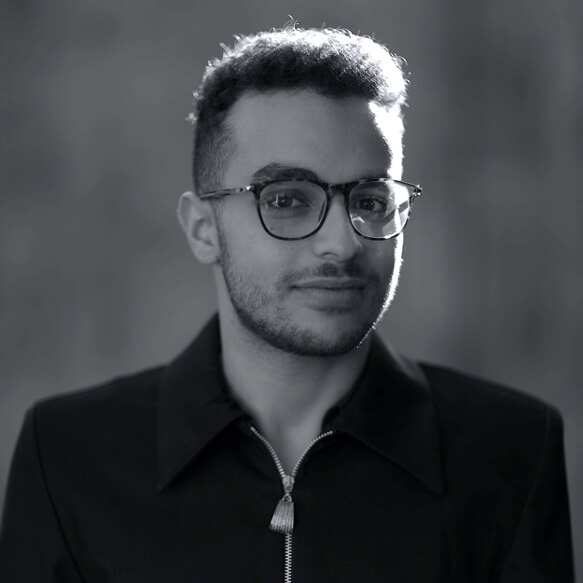
Mounting plays in New York even on a small scale is always challenging, but the group was able to get funding from NYC Pride, partially as a response to what was seen as an increasingly corporate influence on Pride celebrations and the need for legitimate queer voices to be heard. The 2019 Festival was staged at IRT Theater in Manhattan. What Odsess-Rubin learned was that there is an audience that is “incredibly hungry for diverse, queer storytelling.”
With a success under their belts, National Queer Theater made plans for expanding in 2020. They brought on Dixon Place, received a Mayor’s Grant for Cultural Impact, which supports diversity, and because of the international nature of the pieces also received funding from the Mayor’s Office of Immigrant Affairs. Things were moving ahead with submissions coming in from 24 countries, and selections were made to showcase the maximum geographic, gender, and storytelling diversity from queer and transgender artists. The goal was to highlight immigration, equality, and LGBTQ refugees and asylum seekers, illuminating these issues through art and conversation.
And then the shutdown happened. Rather than being daunted, working with Dixon Place, National Queer Theater was able to adapt the festival for online production. Odsess-Rubin is excited and thinks the change, though unanticipated, is a tremendous opportunity. He notes that the festival can now reach a broader audience than in a small theater.
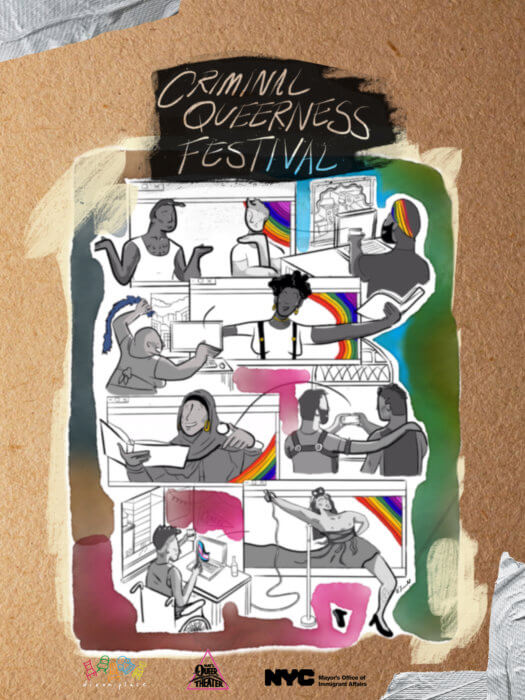
Of the artists who are involved in the events, Odsess-Rubin said, “They’re having a lot of fun with the medium, really exploring the possibilities of Zoom. We have actors in LA, Chicago, New York, and Berlin, and they can all be together.”
He added that the festival has stayed true to its mission to showcase the work of diverse artists in all facets of production and pay them, something that few theater companies have been able to do in recent months.
More importantly, he said, the opportunity for dialogue is greater in the Zoom environment. While each play in the physical festival was followed by a talk-back, Odsess-Rubin realized that few people would want to watch a two-hour play on a screen and then stick around for a conversation. So, those forums and panels have been broken out into separate events, and anyone with an Internet connection can participate, so the festival can now reach more people around the world who need to know they are not alone and that there is a community of artists that welcomes and celebrates them.
Odsess-Rubin is at his most passionate when talking about the power of art as “powerful tool of social change.” At 28, he has a vision of a diverse theater and a belief that “diverse art is richer and more powerful.” In addition, he said, theater needs to be activist and, in light of the current political climate, that activism is more important than ever. He hopes the festival will inspire people to become more activist themselves by fostering understanding of what’s really happening in the world. Pride, he said, is not just about sexy guys in tank tops on floats, it’s about resistance and the Stonewall riots. It’s imperative, he insisted, to get back to that revolutionary instinct that has been so transformative in the culture at key moments.
Nor does Odsess-Rubin think this is a time for complacency even in places where acceptance of queer life is widespread. It can be dangerous for queer artists to work in public in many countries around the world, but here in the US the community is not necessarily safe. He noted the efforts by the Trump administration to limit gay and trans rights and cited New York State’s loitering for the purpose of prostitution, which is often dubbed the “Walking While Trans” ban because it is so often used to harass transgender people, particularly trans women of color.
“America is not so free,” Odsess-Rubin said. “Our rights can be taken away in an instant.”
He is such a believer in the power of the pieces being performed and how they may be catalysts for change that he said in a perfect world there would be no need for this festival in 10 years.
Moving the festival online, Odsess-Rubin said in closing, offers the opportunity to transform theater, to meet people where they are, instead of clinging to traditional models of how theater is presented. He believes that this form is more impactful for — and appealing to — his generation, reflecting how they find and consume all types of media. Online, he said, viewers may be able to engage initially in a casual way and gradually be brought into the essence of the work through its presentation and subject matter.
“This is a different way people can engage in theater,” Odsess-Rubin said, “and it’s thrilling.”
All the events are free and online. The complete schedule is at dixonplace.org/category/criminal-queerness-festival/.
Sign up, and prepare to be challenged intellectually, spiritually, and, of course, theatrically.
CRIMINAL QUEERNESS FESTIVAL | Dixon Place on Zoom, Facebook, and YouTube | Free | Jun. 13-28 | Schedule and events at dixonplace.org/category/criminal-queerness-festival/
To sign up for the Gay City News email newsletter, visit gaycitynews.com/newsletter.

